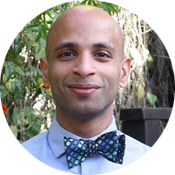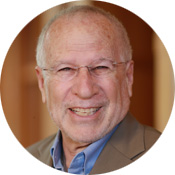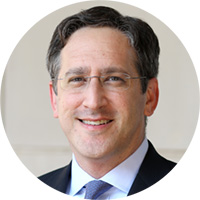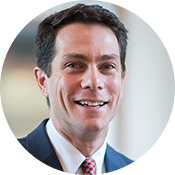The U.S. Supreme Court reshaped constitutional law regarding abortion, firearms and religious liberty during its most recent term, which ended Thursday.
The justices cited professors at the University of Virginia School of Law 12 times: Saikrishna Prakash had four citations; Caleb Nelson had three; and John Harrison, Douglas Laycock, Frederick Schauer, Bobbie Spellman and Ann Woolhandler each had one.
Several Law School faculty provided commentary on some of the justices’ most impactful rulings. (Read more comments and news coverage here.)
Becerra v. Empire Health Foundation
Holding: The court upheld a U.S. Department of Health and Human Services regulation that limits the additional compensation hospitals receive when they treat low-income patients.
 Professor Craig Konnoth writes about health and civil rights, as well as health data regulation. He has filed briefs in the U.S. Supreme Court and the 10th U.S. Circuit Court of Appeals on LGBTQ rights issues.
Professor Craig Konnoth writes about health and civil rights, as well as health data regulation. He has filed briefs in the U.S. Supreme Court and the 10th U.S. Circuit Court of Appeals on LGBTQ rights issues.
“While billions of dollars were at stake, the case is more important for what it did not do. Court watchers were worried that the conservative majority would use this case to overturn the longstanding Chevron doctrine established by Chevron U.S.A. v. Natural Resources Defense Council Inc., the most-cited administrative law decision of all time. Chevron held that courts should defer to agencies when a statute is ambiguous. Conservative judges have long argued against deferring to agency experts. However, in this case, the majority and the dissent do not cite Chevron. They simply hold that the statute is not ambiguous — even though they come to opposite conclusions. I suspect the liberal judges in the majority would have preferred to rely on Chevron but did not do so in order to attract Justices [Clarence] Thomas and [Amy Coney] Barrett, both of whom have criticized Chevron.”
Carson v. Makin
Holding: Maine’s ban on providing tuition assistance payments for religious schools violates the free exercise clause of the First Amendment.
 Professor Douglas Laycock is perhaps the nation’s leading authority on the law of religious liberty and has testified frequently before Congress and has argued many cases in the courts, including the U.S. Supreme Court, where he has served as lead counsel in six cases and has also filed influential amicus briefs. He co-authored an amicus brief in Carson.
Professor Douglas Laycock is perhaps the nation’s leading authority on the law of religious liberty and has testified frequently before Congress and has argued many cases in the courts, including the U.S. Supreme Court, where he has served as lead counsel in six cases and has also filed influential amicus briefs. He co-authored an amicus brief in Carson.
“There are no surprises here. Two earlier cases, Trinity Lutheran v. Comer and Espinoza v. Montana, held that when a state chooses to fund something in the private sector, it cannot discriminate between similarly situated religious and secular providers of the same services (such as child care or education). The challenged statutes in those cases disqualified any organization that was affiliated with a religious body, and the court noted that this disqualified even an organization that was religiously affiliated but not actually doing anything religious with its money. But that was a formality; there basically are no religious organizations that don’t do anything religious with their money. So that distinction never made any sense, and the court said so. Maine funds private high schools, and it cannot discriminate between those that teach religion and those that do not. They all teach the secular curriculum; they all satisfy the compulsory education laws. No state is required to fund private schools at all. But those that choose to do so cannot discriminate.”
City of Austin, Texas v. Reagan National Advertising of Texas Inc.
Holding: The court held that the Austin city code’s distinction between on-premises signs and off-premises signs is content-neutral under the First Amendment.
 Professor Frederick Schauer is a world-renowned expert in the areas of constitutional law, evidence, legal reasoning, freedom of speech, and jurisprudence and the philosophy of law.
Professor Frederick Schauer is a world-renowned expert in the areas of constitutional law, evidence, legal reasoning, freedom of speech, and jurisprudence and the philosophy of law.
“When the Supreme Court decided Reed v. Town of Gilbert in 2015, there was a worry that a wide variety of quite reasonable restrictions on billboards and other forms of outdoor off-premises advertising would be found unconstitutional. This decision, with an opinion written by Justice [Sonia] Sotomayor but also joined by Chief Justice [John] Roberts and Justice [Brett] Kavanaugh as well as Justices [Stephen] Breyer and [Elena] Kagan, indicates that the worry might have been premature or overblown. By allowing regulations that are not based in any way on the message that is communicated, today’s decision makes clear that the First Amendment does not stand in the way of most content-neutral regulations of outdoor advertising.”
Cummings v. Premier Rehab Keller
Holding: A legally blind and deaf woman was denied an ASL interpreter by a physical therapist she was working with. The court held that Cummings could not recover emotional-distress damages for the violation of certain federal antidiscrimination laws.
 Professor Rachel Bayefsky writes about constitutional law, federal courts, civil procedure and legal theory. She clerked for Justice Ruth Bader Ginsburg.
Professor Rachel Bayefsky writes about constitutional law, federal courts, civil procedure and legal theory. She clerked for Justice Ruth Bader Ginsburg.
“The court deployed a contract-law analogy to determine whether recipients of federal funding, like the defendant in this case, would be on notice of liability for emotional distress damages when they agreed not to discriminate in exchange for federal funds. Underlying the court’s decision may have been concerns about which institution — courts or Congress — is best placed to spell out remedies for the violation of the antidiscrimination statutes at issue.”
Dobbs v. Jackson Women’s Health Organization
Holding: Following a challenge to Mississippi’s ban on abortions after 15 weeks, the court held the Constitution does not confer a right to abortion, overruling Roe v. Wade and Planned Parenthood of Southeastern Pennsylvania v. Casey.
 Professor Naomi Cahn is an expert in family law, trusts and estates, feminist jurisprudence, reproductive technology, and aging and the law. She is director of UVA Law’s Family Law Center.
Professor Naomi Cahn is an expert in family law, trusts and estates, feminist jurisprudence, reproductive technology, and aging and the law. She is director of UVA Law’s Family Law Center.
“This will have a profound impact on access to abortion. Some people will continue to have access to local abortion clinics; some will not be able to obtain an abortion in their state. The impact could go well beyond abortion. Attorney General Merrick Garland stated that the court’s opinion has ‘eliminated an established right that has been an essential component of women’s liberty for half a century — a right that has safeguarded women’s ability to participate fully and equally in society.’ That echoes the dissenters’ opinion.” (From a Q&A)
FBI v. Fazaga
Holding: Attendees at an Islamic Center sued for discrimination, alleging that a surveillance program targeted them because of their Muslim religious identity. The federal government sought to dismiss the case under the state secrets privilege. The question that rose to the Supreme Court was whether Section 1806(f) of the Foreign Intelligence Surveillance Act of 1978 — which provides a procedure for lower courts to consider the legality of electronic surveillance conducted under FISA and order forms of relief — displaces the state secrets privilege. The court said no, and sided with the FBI.
 Professor Paul B. Stephan ’77 is an expert on international business, international dispute resolution and comparative law. He recently served as special counsel to the general counsel of the U.S. Department of Defense.
Professor Paul B. Stephan ’77 is an expert on international business, international dispute resolution and comparative law. He recently served as special counsel to the general counsel of the U.S. Department of Defense.
“A unanimous Supreme Court ruled that the special procedure under the 1978 Foreign Intelligence Surveillance Act for determining the legality of electronic surveillance had no bearing on the state-secrets privilege, which entitles the government to withhold state and military secrets from judicial proceedings. The privilege rests on threats to national security, not the legality of the collection. It reversed the Ninth Circuit, which had held that the government could not invoke the privilege with respect to electronic surveillance covered by the 1978 Act.”
Federal Election Commission v. Ted Cruz for Senate
Holding: Section 304 of the Bipartisan Campaign Reform Act of 2002, which limits the amount of post-election contributions that may be used to repay a candidate who lends money to his own campaign, violates the First Amendment rights of candidates and campaigns.
 Professor Deborah Hellman’s scholarship includes articles on campaign finance law, bribery and corruption. She is director of the Center for Law & Philosophy.
Professor Deborah Hellman’s scholarship includes articles on campaign finance law, bribery and corruption. She is director of the Center for Law & Philosophy.
“These contributions are especially likely to lead to corruption for two reasons. First, the contribution is used to repay the campaign’s debt to the candidate and thus the money ultimately goes into the candidate’s own pocket, unlike other campaign contributions. Second, because these contributions are made after the election, the donor knows, rather than merely hopes, that the candidate is in a position to confer benefits. The opinion was also noteworthy for its blurring of the line between a contribution and an expenditure, emphasizing that the limit on repayment via contribution after the election will deter candidates from spending their own money on their campaigns.”
New York State Rifle & Pistol Association Inc. v. Bruen
Holding: New York’s requirement that applicants for unrestricted concealed-carry gun licenses violates the 14th Amendment “by preventing law-abiding citizens with ordinary self-defense needs from exercising their Second Amendment right to keep and bear arms in public for self-defense.”
 Professor Sarah Shalf ’01 directs the Community Solutions Clinic and serves as the school’s director of clinical programs. She is co-author of “The Legal Context of School Violence: The Effectiveness of Federal, State, and Local Law Enforcement Efforts to Reduce Gun Violence in Schools.”
Professor Sarah Shalf ’01 directs the Community Solutions Clinic and serves as the school’s director of clinical programs. She is co-author of “The Legal Context of School Violence: The Effectiveness of Federal, State, and Local Law Enforcement Efforts to Reduce Gun Violence in Schools.”
“The outcome of Bruen is unsurprising: ‘May issue’ permitting regimes can be problematic, and by contrast, the court made clear in its opinion that the more common ‘shall issue’ regimes are generally permissible. The real impact of this decision is the solely history-focused methodology it prescribes. This will make the job of advocates and lower courts even more difficult as they try to make sense of an inconsistent and unclear historical record. It also likely means that innovative new ways of addressing gun violence will be more difficult to support in the face of challenges.”
Kennedy v. Bremerton School District
Holding: A high school football coach who led prayers with students during and after school games was fired; he argued his prayers were protected speech. The court ruled the First Amendment protects individuals engaging in a personal religious observance from government reprisal.
 Professor Micah Schwartzman ’05 focuses on law and religion, jurisprudence, political philosophy and constitutional law, Schwartzman is director of the Karsh Center for Law and Democracy.
Professor Micah Schwartzman ’05 focuses on law and religion, jurisprudence, political philosophy and constitutional law, Schwartzman is director of the Karsh Center for Law and Democracy.
“In Bremerton, the Supreme Court continued to smash away at the separation of church and state. Although the case focused on whether a football coach could lead students in prayer on the 50-yard line, the court used this occasion to make explicit that it has abandoned — which is to say overruled — Lemon v. Kurtzman, which set out the framework that the court used for more than a half-century to understand and apply the establishment clause. Because Lemon required that laws have a secular purpose, the court’s repudiation of it entails rejection of that principle, which may have profound consequences for the relationship between religion and politics in our country. On its facts, this is a narrow decision, but the reasoning marks a consolidation in the conservative majority’s approach to the First Amendment and signals the end of an era of church-state separation.”
Shurtleff v. Boston
Holding: Boston owns and manages three flagpoles in front of its City Hall, and will sometimes allow groups to fly their own flag. The city was sued after refusing to fly a private religious organization’s flag depicting a cross on a city flagpole. The court held that Boston’s flag-raising program did not constitute government speech, so the city’s refusal to let the petitioners fly their flag violated the First Amendment.
 Professor Richard Schragger’s scholarship focuses on the intersection of constitutional law and local government law, federalism, urban policy, and the constitutional and economic status of cities. He also writes about law and religion.
Professor Richard Schragger’s scholarship focuses on the intersection of constitutional law and local government law, federalism, urban policy, and the constitutional and economic status of cities. He also writes about law and religion.
“Shurtleff will be thought of as a relatively easy case; the principle that government cannot disallow religious speech when it permits other forms of private speech is well-established, and here the city of Boston allowed many speakers to use its flagpole to fly their flags and disallowed only a flag [that] was religious in nature. It is important to note, however, that this case is one of a number that have implications for the reach of the establishment clause of the First Amendment. The court has now permitted sectarian Christian prayer at town council meetings, the public ownership of a 30-foot cross and prayer by a coach on the 50-yard line immediately following football games. The court is allowing much more room for explicitly Christian prayer and symbols in the public sphere, whether engaged in by the government or by private parties.”
West Virginia v. Environmental Protection Agency
Holding: In the Clean Air Act, Congress did not grant the Environmental Protection Agency the authority to devise emissions caps based on the generation-shifting approach the agency took in the Clean Power Plan.
 Professor Cale Jaffe ’01 is director of the Environmental Law and Community Engagement Clinic and serves on the Virginia Coal and Energy Commission.
Professor Cale Jaffe ’01 is director of the Environmental Law and Community Engagement Clinic and serves on the Virginia Coal and Energy Commission.
“I am most struck by the fact that Chief Justice Roberts, writing for the majority, never mentions the foundational case on the Environmental Protection Agency’s authority to regulate greenhouse gas pollution under the Clean Air Act, the Court’s 2007 ruling in Massachusetts v. EPA. Justice [Neil] Gorsuch’s concurrence avoids any reference to this critically important precedent as well.
“Justice [Elena] Kagan, in dissent, leads with it. She writes, ‘Today, the Court strips the Environmental Protection Agency (EPA) of the power Congress gave it to respond to “the most pressing environmental challenge of our time.” Massachusetts v. EPA, 549 U. S. 497, 505 (2007).’ Justice Kagan goes on to cite the landmark decision in Massachusetts five more times throughout her dissent.”
 Professor Julia Mahoney’s scholarly articles include works on land preservation, eminent domain, health care reform and property rights in human biological materials.
Professor Julia Mahoney’s scholarly articles include works on land preservation, eminent domain, health care reform and property rights in human biological materials.
“In West Virginia v. EPA, the court explained that it is generally the job of Congress, not administrative agencies, to make major decisions about pressing economic and social questions. In the absence of clear congressional delegation of power, the court declined to find that Congress had authorized the EPA to adopt a sweeping regulatory scheme under the Clean Air Act. Today’s holding will be understood by many as a victory for the principles of separation of powers and the bounded authority of the administrative state.”
Founded in 1819, the University of Virginia School of Law is the second-oldest continuously operating law school in the nation. Consistently ranked among the top law schools, Virginia is a world-renowned training ground for distinguished lawyers and public servants, instilling in them a commitment to leadership, integrity and community service.


